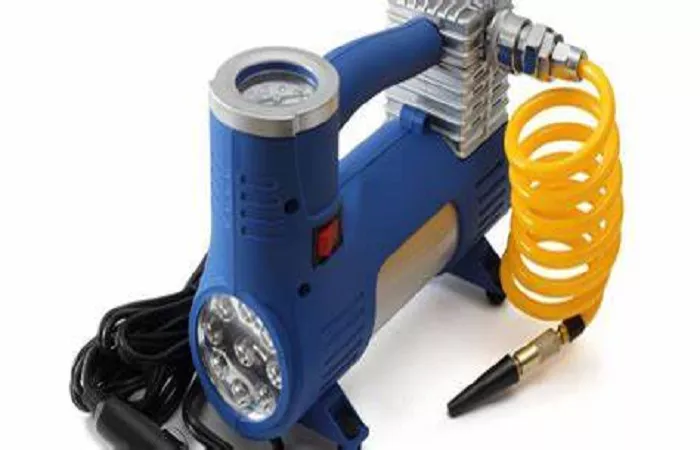An air compressor is a versatile and essential machine used across various industries and applications. It converts power (usually from an electric motor, diesel engine, or gasoline engine) into potential energy stored in pressurized air. This compressed air can then be used to power tools, operate machinery, and perform numerous tasks efficiently.
How Does an Air Compressor Work?
Air Intake: The compressor pulls in air from the surrounding environment.
Compression: The air is compressed using a piston, rotary screw, or vane mechanism, reducing its volume and increasing its pressure.
Storage: The compressed air is stored in a tank until needed.
Release: When required, the pressurized air is released through a hose or pipe to power tools or equipment.
Types of Air Compressors
Reciprocating (Piston) Compressors
- Use pistons driven by a crankshaft to compress air.
- Common in small workshops, garages, and DIY projects.
- Available in single-stage (for lower pressure) and two-stage (for higher pressure) models.
Rotary Screw Compressors
- Use two interlocking helical screws to compress air.
- Ideal for continuous industrial use (e.g., manufacturing plants).
- More efficient and quieter than piston compressors.
Centrifugal Compressors
- Use a high-speed impeller to accelerate air, which is then slowed down to increase pressure.
- Used in large-scale industrial applications (e.g., power plants, chemical processing).
Key Applications of Air Compressors
Industrial Manufacturing
Pneumatic Tools: Air compressors power drills, grinders, sanders, and nail guns in assembly lines.
Automation Systems: Used in robotic arms and conveyor systems for precise control.
Spray Painting: Provides a smooth, even coat in automotive and furniture manufacturing.
Material Handling: Powers air-operated hoists and lifts for moving heavy goods.
Construction & Engineering
Jackhammers & Demolition Tools: High-pressure air drives heavy-duty breaking tools.
Sandblasting: Cleans and prepares surfaces by blasting abrasive materials with compressed air.
Concrete Pumping: Helps in transferring liquid concrete efficiently.
Automotive Industry
Tire Inflation: Gas stations and repair shops use compressors to fill tires quickly.
Air Brake Systems: Heavy trucks and buses rely on compressed air for braking.
Engine Cleaning: Air blowguns remove dust and debris from engines and parts.
Medical & Dental Fields
Dental Tools: Air-driven drills and suction devices ensure precision in dental procedures.
Hospital Ventilators: Compressed air supports respiratory machines.
Sterilization: Used in autoclaves for sterilizing medical equipment.
Home & DIY Applications
Inflating Sports Equipment: Balls, bicycle tires, and inflatable pools can be filled easily.
Powering Nail Guns & Staplers: Useful for carpentry and home renovations.
Cleaning: Blowing dust off electronics, workshop tools, and hard-to-reach areas.
Advantages of Using Air Compressors
Efficiency: Compressed air delivers instant power without the need for electrical wiring in every tool.
Safety: Unlike electricity, compressed air doesn’t pose fire or shock hazards in wet or explosive environments.
Versatility: A single compressor can power multiple tools, reducing equipment costs.
Durability: Pneumatic tools often last longer than electric ones due to fewer moving parts.
Clean Operation: Unlike hydraulic systems, air compressors don’t leak oil, making them ideal for food and medical applications.
Choosing the Right Air Compressor
Required Pressure (PSI): Higher PSI is needed for heavy-duty tools like jackhammers.
Airflow (CFM): Tools requiring continuous air (e.g., sanders) need higher CFM.
Tank Size: Larger tanks provide more stored air but take up more space.
Power Source: Electric compressors are common indoors, while gas/diesel models suit outdoor sites.
Portability: Wheeled or portable compressors are ideal for job sites.
Maintenance Tips for Air Compressors
- Regularly Check Oil Levels (for oil-lubricated models).
- Drain Moisture from the Tank to prevent rust.
- Inspect Air Filters and replace them when clogged.
- Tighten Loose Bolts & Fittings to prevent air leaks.
- Monitor Belt Tension (in belt-driven models).
Conclusion
Air compressors are indispensable in modern industry, construction, medicine, and even household tasks. Their ability to convert power into reliable, clean, and versatile compressed air makes them a cornerstone of efficiency across many fields.
Whether you’re a professional contractor, a factory manager, or a DIY enthusiast, understanding the uses and benefits of air compressors helps in selecting the right model for your needs. With proper maintenance, an air compressor can provide years of dependable service, making it a worthwhile investment for any application.

